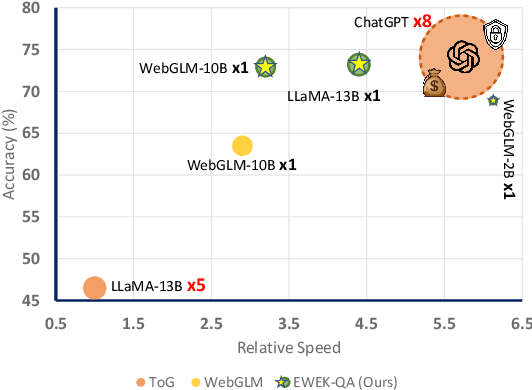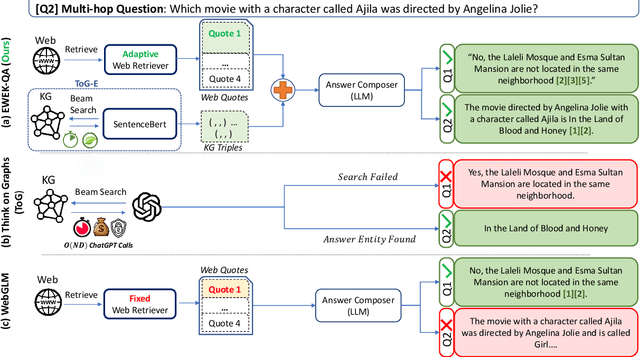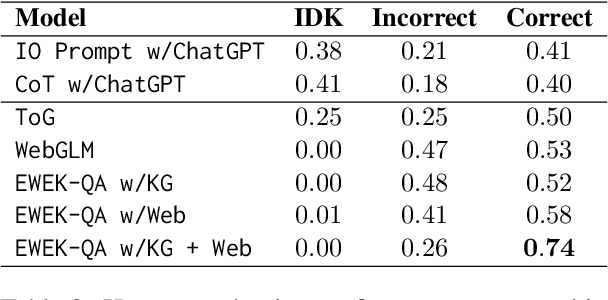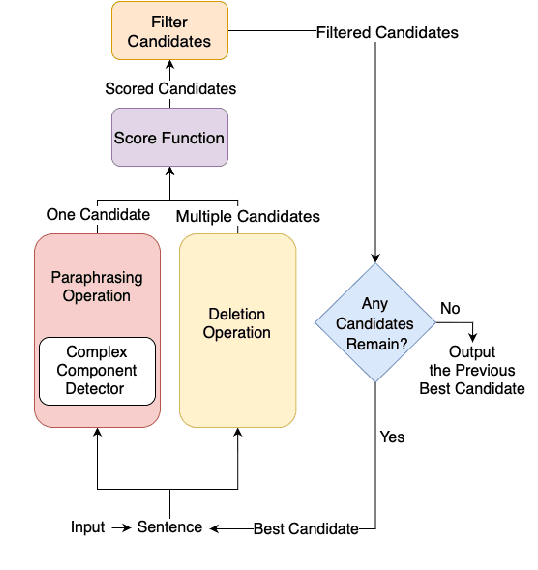Mohammad Dehghan
EWEK-QA: Enhanced Web and Efficient Knowledge Graph Retrieval for Citation-based Question Answering Systems
Jun 14, 2024



Abstract:The emerging citation-based QA systems are gaining more attention especially in generative AI search applications. The importance of extracted knowledge provided to these systems is vital from both accuracy (completeness of information) and efficiency (extracting the information in a timely manner). In this regard, citation-based QA systems are suffering from two shortcomings. First, they usually rely only on web as a source of extracted knowledge and adding other external knowledge sources can hamper the efficiency of the system. Second, web-retrieved contents are usually obtained by some simple heuristics such as fixed length or breakpoints which might lead to splitting information into pieces. To mitigate these issues, we propose our enhanced web and efficient knowledge graph (KG) retrieval solution (EWEK-QA) to enrich the content of the extracted knowledge fed to the system. This has been done through designing an adaptive web retriever and incorporating KGs triples in an efficient manner. We demonstrate the effectiveness of EWEK-QA over the open-source state-of-the-art (SoTA) web-based and KG baseline models using a comprehensive set of quantitative and human evaluation experiments. Our model is able to: first, improve the web-retriever baseline in terms of extracting more relevant passages (>20\%), the coverage of answer span (>25\%) and self containment (>35\%); second, obtain and integrate KG triples into its pipeline very efficiently (by avoiding any LLM calls) to outperform the web-only and KG-only SoTA baselines significantly in 7 quantitative QA tasks and our human evaluation.
GRS: Combining Generation and Revision in Unsupervised Sentence Simplification
Mar 22, 2022



Abstract:We propose GRS: an unsupervised approach to sentence simplification that combines text generation and text revision. We start with an iterative framework in which an input sentence is revised using explicit edit operations, and add paraphrasing as a new edit operation. This allows us to combine the advantages of generative and revision-based approaches: paraphrasing captures complex edit operations, and the use of explicit edit operations in an iterative manner provides controllability and interpretability. We demonstrate these advantages of GRS compared to existing methods on the Newsela and ASSET datasets.
 Add to Chrome
Add to Chrome Add to Firefox
Add to Firefox Add to Edge
Add to Edge